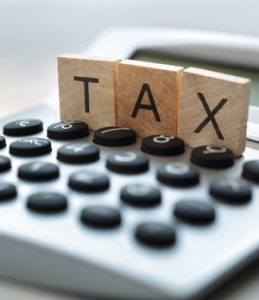A major concern on the minds of business and the public is how tax revenue collections are performing and whether we can expect further tax increases in the 2019 Budget.
This is particularly the case given the large tax increases seen in recent years, and the shortfalls in revenue collections against Budget forecasts, says Kyle Mandy, tax policy leader at PwC.
Mandy notes that 2014/15 saw a shortfall against the original Budget forecast of R7.3 billion; in 2015/16 there was a shortfall of R11.3 billion; in 2016/17 a shortfall of R30.6 billion; and in 2017/18 a shortfall of R49 billion.
“The trend of the ever-increasing shortfalls in tax collection is, of course, a worry as it results in upward adjustments in tax rates,” he said.
“The significant tax increase in the 2017 and 2018 Budgets amounted to R28 billion and R36 billion, respectively.
“The true tax increases in 2015 and 2016 probably amounted to R18 billion and R15 billion, respectively, once fiscal drag is factored in. In this regard, inflation was not fully taken into account in the increases presented in the Budget, resulting in an understatement of the true increases insofar as personal income tax is concerned and an overstatement for fuel levies and excise duties.”
“The good news is that revenue collections for 2018/19 are looking surprisingly good (compared to forecasts) based on the data available to the end of August – despite the economy being in a technical recession,” Mandy said.
“As at the end of August, total gross main budget tax revenues were 11.2% up on 2017/18 on a year-to-date basis against a forecast increase of 10.6%, suggesting collections are on track to exceed the Budget revenue forecast in the year ending March 2019.”
He noted that the main contributor to the strong growth in revenue collections is increased VAT collections, which are running well ahead of the forecast revenue growth of 16.8% for the year – at 19.5% as at August.
Mandy noted that the general fuel levy, which has become an important source of revenue in recent years, is also performing strongly and growing slightly ahead of forecast.
Despite these concerns, Mandy said that the performance to-date has been somewhat surprising given the pressure the consumer is under due to significant tax increases and increases in the fuel price in recent months.
“Overall, we expect National Treasury to largely maintain its February forecast for tax revenues for 2018/19 in the MTBPS, albeit with a downward revision for CIT largely offset by an upward revision for VAT and import duties,” he said
“Tax changes for the year ahead are not normally announced in the MTBPS, these typically being left for the February budget, and we can expect this to be the case once again this year (other than in respect of the possible zero-rating of additional goods).


